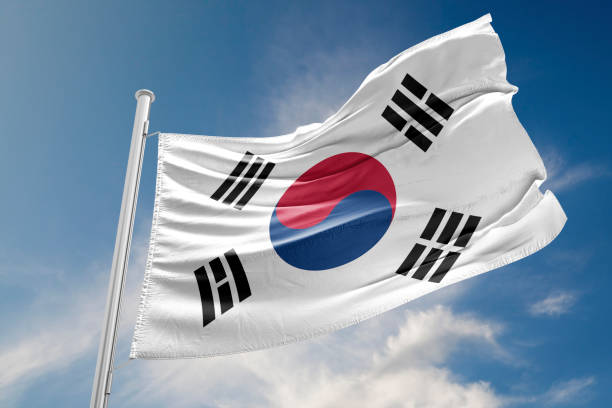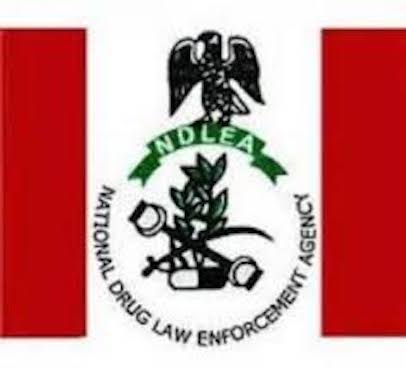Foreign News
Nigeria Arrests 8,634 Drug Traffickers in 8 months, Seizures Worth N100bn – Marwa

Nigeria arrested no fewer than 8,634 suspected drug traffickers from January to August 2021, Chairman/Chief Executive Officer, National Drug Law Enforcement Agency (NDLEA), Brig.-Gen. Buba Marwa (rtd), has disclosed.
Marwa told the Human Rights, Humanitarian Affairs and Social Committee of the UN General Assembly in New York on Tuesday that NDLEA also made seizures of more than100 billion naira in drugs and cash over the period.
“Our consistent targeting of drug trafficking organisations has resulted in the arrest of 8,634 suspected drug traffickers and the seizure of over 100 billion Naira in cash and drugs,” he said.
“Perpetrators will go through the criminal justice system, with their fundamental human rights being strictly upheld.
“Against the backdrop of the strong linkage between illicit drug consumption and insecurity, it is worthy of note that Nigeria made its first seizure of 74.119 kg of Captagon brand of amphetamine, presumably destined for use, to fuel insurgency and other violent crimes and criminalities, which Nigeria is currently grappling with.
“Nigeria is happy to report that the EU funded, UNODC sponsored Cannabis Cultivation Survey is expected to bring to the fore the full extent of cannabis cultivation in Nigeria and make it easier to target measures to contain this perennial menace,” Marwa said.
The UN Correspondent of the News Agency of Nigeria (NAN) reports that the NDLEA boss thanked the international partners for supporting Nigeria’s fight against drug abuse and trafficking.
Marwa said the unexpected emergence of COVID -19 pandemic, no doubt, had further accentuated the scourge of drug trafficking and related crimes globally.
“It is worthy of mention here that one of the challenges of the pandemic is the proliferation of online sale of drug cookies and use of courier services to move illicit drugs.
“However, we were able to intercept, trace and dismantle most of the drug cells involved.
“This constitutes a clarion call for all nations of the world to unite in adversity by taking concerted and well-coordinated actions at national, regional and international levels to address and counter the world drug problems, through evolving drug control policies, effective crime prevention nechanisms and complete overhaul of the criminal justice system.”
“Nigeria will remain undaunted in adopting dynamic strategies to counter new approaches adopted by organised criminals, in order to make drug trafficking unattractive.
“It will ensure forfeiture of the criminally derived assets, a tested and powerful deterrent to the proliferation of Drug Crimes and Criminalities,’’ he said.
In addition, Marwa told the UN committee that Nigerian government had produced the improved fourth edition of the Drug Control Master Plan 2021 to 2025 with the technical support from the UNODC, EU funding.
He said the document comprehensively addressed four thematic pillars of supply reduction, demand reduction, access to controlled medicines for medical purposes and coordination and governance.
“Nigeria is committed to the periodic monitoring and evaluation of the master plan with relevant stakeholders for optimum results,’’ the Nigerian drug enforcement boss stressed.
According to him, the Nigerian government has exhibited the political will by demonstrating high commitment to the protection of public health and safety with the launch of the War Against Drug Abuse (WADA) campaign.
“This campaign is a call for civil action for all Nigerians to buy in and take full ownership of the fight against the menace of illicit drugs.
“More so, Nigeria’s drug control efforts have received a tremendous thrust with unprecedented stakeholders’ involvement.
“We have engaged civil society groups, non- governmental organisations, academia and governments at all levels, public enlightenment is also being strengthened with remarkable media visibility against illicit drugs and related criminalities,’’ he said.
The NDLEA chief also told the committee that appropriate strategies had been adopted to address the issue of stigmatisation of people who used drugs in the country.
He said strategies adopted to address stigmatisation included meeting the needs of vulnerable communities and groups such as women, girls, children (out of school and homeless), internally displaced persons, among others.
He said Nigeria recognised drug use disorder as a public health issue and the COVID-19 pandemic lockdown necessitated the establishment of UNODC-EU sponsored Drug Help Net, a network of professionals who provided over the phone assistance to people who use drugs and their families during the lockdown.
The NDLEA, saddled with eliminating the growing, processing, manufacturing, selling, exporting, and trafficking of hard drugs, is present at the nation’s international airports, seaports and border crossings and it tries to eradicate cannabis by destroying plantings.
NAN reports that the agency also targets leaders of narcotics and money laundering organisations. (NAN)
Foreign News
President Yoon Banned from Leaving South Korea

The South Korean Government ordered an overseas travel ban on President Yoon Suk Yeol.The South Korean news agency Yonhap reported on Monday that the travel ban is due to the ongoing investigation into Yoon, which involves suspicion of high treason.Yoon unexpectedly imposed martial law on his country last Tuesday night, but hours later, after massive political resistance, he repealed the order.
On Saturday evening, a motion by the opposition to impeach the president in parliament failed. However, public pressure against the 63-year-old continues. (dpa/NAN)Foreign News
Israel Threatens to Expand War if Hezbollah Truce Collapses

Israel threatened on Tuesday to return to war in Lebanon if its truce with Hezbollah collapses and said this time its attacks would go deeper and target the Lebanese state itself, after the deadliest day since the ceasefire was agreed last week.
In its strongest threat since the truce was agreed to end 14 months of war with Hezbollah, Israel said it would hold Lebanon responsible for failing to disarm militants who violated the truce.
“If we return to war we will act strongly, we will go deeper, and the most important thing they need to know: that there will be no longer be an exemption for the state of Lebanon,” Defence Minister Israel Katz said.
“If until now we separated the state of Lebanon from Hezbollah… it will no longer be (like this),” he said during a visit to the northern border area.
Despite last week’s truce, Israeli forces have continued strikes in southern Lebanon against what they say are Hezbollah fighters ignoring the agreement to halt attacks and withdraw beyond the Litani River, about 30 km (18 miles) from the frontier.
On Monday, Hezbollah shelled an Israeli military post, while Lebanese authorities said at least 12 people were killed in Israeli airstrikes on Lebanon.
Katz called the Hezbollah attack “the first test” and described Israel’s strikes as a strong response.
The Beirut government must “authorise the Lebanese army to enforce their part, to keep Hezbollah away beyond the Litani, and to dismantle all the infrastructure,” Katz said.
“If they don’t do it and this whole agreement collapses then the reality will be very clear.”
Top Lebanese officials urged Washington and Paris to press Israel to uphold the ceasefire, after dozens of military operations on Lebanese soil that Beirut has deemed violations, two senior Lebanese political sources told Reuters on Tuesday.
The sources said caretaker Prime Minister Najib Mikati and Speaker of Parliament Nabih Berri, a close Hezbollah ally who negotiated the deal on behalf of Lebanon, spoke to officials at the White House and French presidency late on Monday.
Mikati, quoted by the Lebanese news agency, said that diplomatic communications had intensified since Monday to stop Israeli violations of the ceasefire.
He also said a recruitment drive was under way by the Lebanese army to strengthen its presence in the south.
U.S. State Department spokesperson Matt Miller told reporters on Monday that the ceasefire “is holding” and that the U.S. had “anticipated that there might be violations”.
Neither the French presidency nor the foreign ministry were immediately available to comment.
French Foreign Minister Jean-Noel Barrot spoke to his Israeli counterpart Gideon Saar on Monday, saying both sides should adhere to the ceasefire.
The truce came into effect on Nov. 27 and prohibits Israel from conducting offensive military operations in Lebanon, while requiring Lebanon to prevent armed groups including Hezbollah from launching attacks on Israel.
It gives Israeli troops 60 days to withdraw from south Lebanon.
A mission chaired by the United States is tasked with monitoring, verifying, and helping enforce the truce, but it has yet to begin work.
Berri on Monday called on the mission to “urgently” ensure Israel halts its breaches, saying Beirut had logged at least 54 Israeli violations of the ceasefire so far.
Israel has said its continued activity in Lebanon is aimed at enforcing the ceasefire.
Lebanon’s Mikati met in Beirut on Monday with U.S. General Jasper Jeffers, who will chair the monitoring committee.
Two sources familiar with the matter told Reuters that France’s representative to the committee, General Guillaume Ponchin, would arrive in Beirut on Wednesday and that the committee would hold its first meeting on Thursday.
“There is an urgency to finalise the mechanism, otherwise it will be too late,” the source said, referring to Israel’s gradual intensification of strikes even with the truce in place. (Reuters/NAN)
Foreign News
Starmer Rules out Re-running UK Election as Petition Gets Signatures

British Prime Minister Keir Starmer has ruled out calling another general election, but said he is “not surprised” some people who did not support his party, Labour, might want a second poll.
A petition on Parliament’s website calling for another election has now been signed by more than two million people.
“I would like there to be another general election,” it reads.
“I believe the current Labour Government have gone back on the promises they laid out in the lead-up to the last election.
”Asked about the petition on ITV’s “This Morning” programme on Monday, Starmer said: “Look, I remind myself that very many people didn’t vote Labour at the last election.
“I’m not surprised that many of them want a re-run. That isn’t how our system works.
“There will be plenty of people who didn’t want us in the first place.
“So, what my focus is on is the decisions that I have to make every day.”
He characterized decisions taken so far by his government as “tough but fair.”
Starmer and his ministers have faced a particularly strong backlash for limiting winter fuel payments to only the poorest pensioners.
Farmers have also protested over changes to inheritance tax which they claim could affect the future of their businesses.
As he marks five months as prime minister, Starmer acknowledged the job has been difficult, but added: “I wouldn’t swap a single day in opposition for a day in power.
“It’s much better to be in power to do things, rather than the frustration, as I found it, in opposition for all of those long years where we were just able to say what we would do.”
The petition calling for another general election is open for signatures until May 2025.
While the vast majority of those signing it are from the UK, it has also gained support from other countries.
More than 1,200 people from the U.S. have added their names to it, with similar a number from France doing the same.
American signatories may have been made aware of the petition by Elon Musk, the businessman and ally of President-elect Donald Trump.
He shared the petition on X, the social media site he owns formerly known as Twitter, claiming “the people of Britain have had enough of a tyrannical police state”.
Starmer’s office sought to avoid being drawn into a war of words with Mr Musk.
The prime minister’s official spokesman added Starmer was “focused on the issues that matter most to the British people.”
Although it has garnered media attention and millions of signatures, it is far from the largest petition received through the Parliament website, or the one which has seen the most rapid take-up.
In 2019, some 6.1 million people signed a petition calling for the revocation of Article 50 and for the United Kingdom to remain in the European Union, four million of whom did so in 48 hours.
The second most-signed petition gained 4.1 million signatures.
The 2016 petition called for a second referendum on the UK’s membership of the European Union following the Brexit vote.
Because the election petition has received 10,000 signatures, ministers will issue a response to it.
MPs may consider it further in a Westminster Hall debate because it has been signed by more than 100,000 people, although this is not guaranteed.
A petition which has successfully made it to debate is one calling for social media companies to ban under 16-year-olds from their platforms after it received more than 110,00 signatures.
Another calling for the law around school term-time holidays to be relaxed, which received 250,000 signatures, was due for debate on Monday afternoon.
Michael Westwood, the man who started the petition, has confirmed he voted Conservative at the summer election.
But he told Talk TV he did not know if this would be the case again, adding: “One thing’s for certain, I wouldn’t be voting Labour.”
Among those sharing the petition online was retired actor Sir Michael Caine, who has been critical of Labour governments in the past. (PA Media/dpa/NAN)























